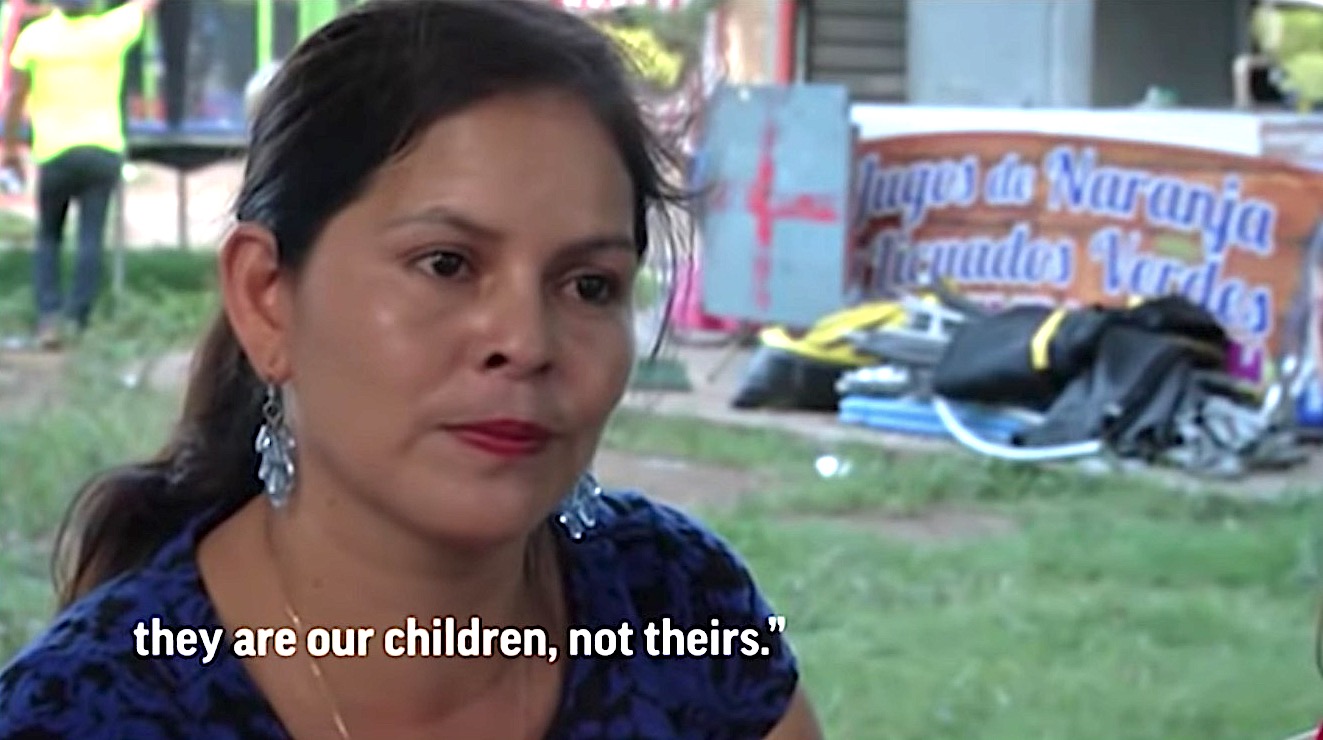Deported migrant parents can lose custody of their separated children thanks to loopholes


A free daily email with the biggest news stories of the day – and the best features from TheWeek.com
You are now subscribed
Your newsletter sign-up was successful
Even before the Trump administration briefly made family separation official policy, migrant children were sometimes split from their parents at the U.S. border, and when those children are placed in foster care, things can get complicated quickly. The separated children are under custody of the federal Office of Refugee Resettlement, but states "typically run child-welfare system," The Associated Press reports, and the end result can be deported parents deprived of parental rights, their children adopted by American families.
After an extensive investigation, AP "identified holes in the system that allow state court judges to grant custody of migrant children to American families — without notifying their parents." "When state courts gain control of a child being detained by the federal government, that child can become invisible in the system."
AP focused on the story of Salvadoran national Araceli Ramos Bonilla and her daughter Alexa, separated from her mother at age 2 when they crossed into Texas and eventually placed into a foster home in Michigan while her mother was deported. The Michigan family convinced a rural state judge to grant them full custody of Alexa without Ramos' knowledge, and if federal prosecutors hadn't stepped in after Ramos waged a social media campaign, the family may well have adopted Alexa.
The Week
Escape your echo chamber. Get the facts behind the news, plus analysis from multiple perspectives.

Sign up for The Week's Free Newsletters
From our morning news briefing to a weekly Good News Newsletter, get the best of The Week delivered directly to your inbox.
From our morning news briefing to a weekly Good News Newsletter, get the best of The Week delivered directly to your inbox.
Alexa was finally returned to Ramos after 15 months, and it took several more months for Alexa to bond with her mother again and relearn Spanish. Some parents haven't been so lucky. And with hundreds of children still in detention or foster care from President Trump's "zero tolerance" policy, hundreds of separated parents deported, and more than 200 children deemed ineligible for reunification or release, "it's just a recipe for disaster," says former ICE director John Sandweg.
It's unjust to "give our children up for adoption without our permission," Ramos told AP. "They are our children, not theirs." You can read more about the Ramos case and flaws in the system at The Associated Press.
A free daily email with the biggest news stories of the day – and the best features from TheWeek.com
Peter has worked as a news and culture writer and editor at The Week since the site's launch in 2008. He covers politics, world affairs, religion and cultural currents. His journalism career began as a copy editor at a financial newswire and has included editorial positions at The New York Times Magazine, Facts on File, and Oregon State University.
-
 Political cartoons for February 16
Political cartoons for February 16Cartoons Monday’s political cartoons include President's Day, a valentine from the Epstein files, and more
-
 Regent Hong Kong: a tranquil haven with a prime waterfront spot
Regent Hong Kong: a tranquil haven with a prime waterfront spotThe Week Recommends The trendy hotel recently underwent an extensive two-year revamp
-
 The problem with diagnosing profound autism
The problem with diagnosing profound autismThe Explainer Experts are reconsidering the idea of autism as a spectrum, which could impact diagnoses and policy making for the condition
-
 Judge blocks Hegseth from punishing Kelly over video
Judge blocks Hegseth from punishing Kelly over videoSpeed Read Defense Secretary Pete Hegseth pushed for the senator to be demoted over a video in which he reminds military officials they should refuse illegal orders
-
 Trump’s EPA kills legal basis for federal climate policy
Trump’s EPA kills legal basis for federal climate policySpeed Read The government’s authority to regulate several planet-warming pollutants has been repealed
-
 House votes to end Trump’s Canada tariffs
House votes to end Trump’s Canada tariffsSpeed Read Six Republicans joined with Democrats to repeal the president’s tariffs
-
 Bondi, Democrats clash over Epstein in hearing
Bondi, Democrats clash over Epstein in hearingSpeed Read Attorney General Pam Bondi ignored survivors of convicted sex offender Jeffrey Epstein and demanded that Democrats apologize to Trump
-
 El Paso airspace closure tied to FAA-Pentagon standoff
El Paso airspace closure tied to FAA-Pentagon standoffSpeed Read The closure in the Texas border city stemmed from disagreements between the Federal Aviation Administration and Pentagon officials over drone-related tests
-
 Judge blocks Trump suit for Michigan voter rolls
Judge blocks Trump suit for Michigan voter rollsSpeed Read A Trump-appointed federal judge rejected the administration’s demand for voters’ personal data
-
 US to send 200 troops to Nigeria to train army
US to send 200 troops to Nigeria to train armySpeed Read Trump has accused the West African government of failing to protect Christians from terrorist attacks
-
 Grand jury rejects charging 6 Democrats for ‘orders’ video
Grand jury rejects charging 6 Democrats for ‘orders’ videoSpeed Read The jury refused to indict Democratic lawmakers for a video in which they urged military members to resist illegal orders
